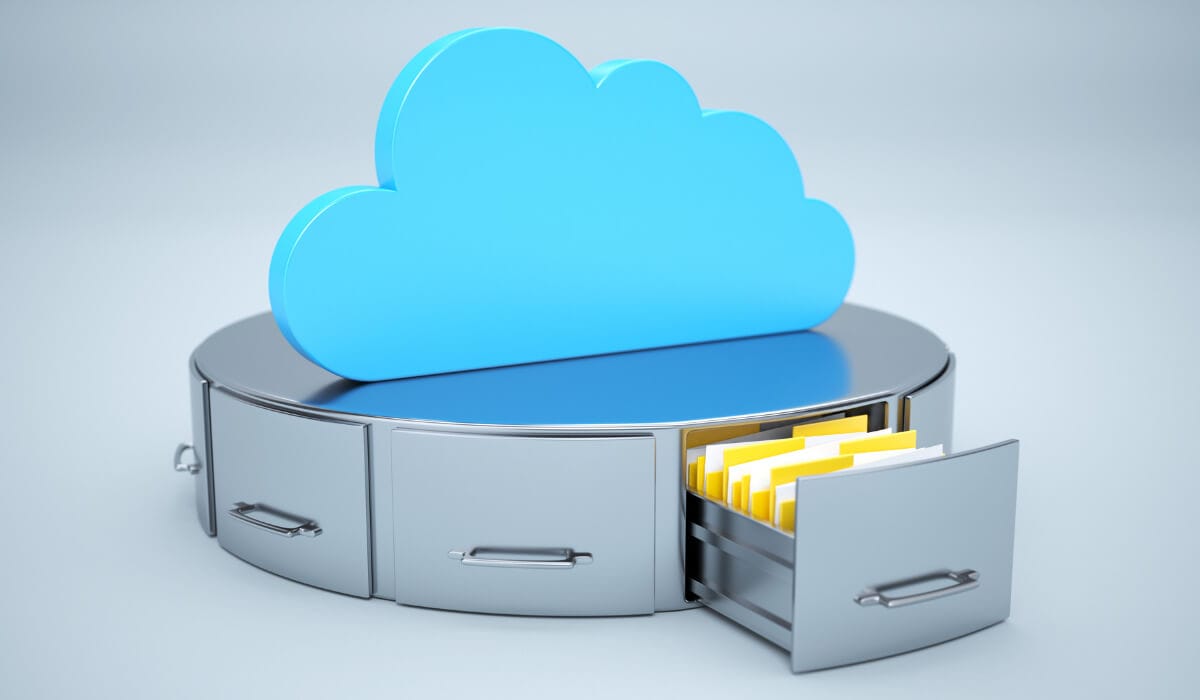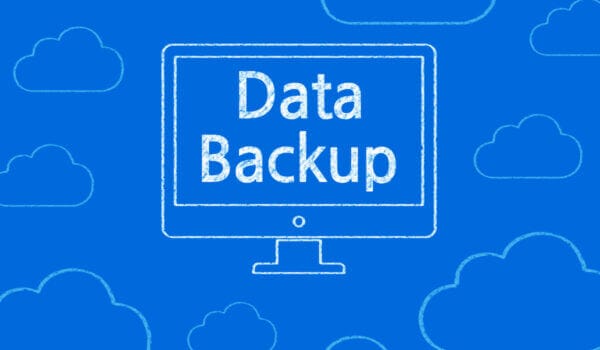
ProtectingYour Data Against Cybersecurity Threats: The Importance Of Regular Cloud Backups
Written By:

Rob Stevenson
Founder
Is your organisation doing enough to safeguard itself against the ever-present stream of cybersecurity threats?
In today’s fast-paced digital world, ensuring the safety of your valuable data is of utmost importance. The truth is hackers are continually refining their methods and discovering new ways to exploit vulnerabilities, posing a significant risk to businesses like yours.
To effectively counter these risks and shield your sensitive information, it’s crucial to implement robust cybersecurity measures. One essential component of this defence strategy is regular cloud backups. They play a vital role in protecting your data from potential breaches or loss.
In this blog, we’ll delve into the perils of cybersecurity threats, shedding light on the importance of practising good data cyber hygiene.
We’ll also discuss how implementing a reliable cloud backup solution can be a game-changer when it comes to enhancing your data security.
The reality of data breaches and cyber attacks
Within the past 12 months, many businesses and charities have fallen victim to breaches or cyber-attacks. In fact, approximately 32% of companies and 24% of charities have encountered such incidents.
However, certain groups face an even higher likelihood of experiencing attacks from cyber criminals. Medium-sized businesses have reported a rate of 59%, large businesses at 69%, and high-income charities with an annual income of £500,000 or more at 56%.
These statistics highlight the widespread nature of cybersecurity threats across various sectors, underscoring the urgency for prioritising data protection.
Businesses and charities must proactively mitigate these security risks and safeguard their valuable information.
What is cyber hygiene, and why is it important for cybersecurity protection?
Cyber hygiene practices refer to proactive measures to maintain the security, integrity, and resilience of digital systems, networks, and data.
These practices encompass various actions to protect against cyber threats, including malware, data breaches, unauthorised access, and other cyber attacks.
Examples of good cyber hygiene practices include:
- Strong passwords: Use strong, unique passwords for each online account.
- Multi-factor authentication: Enable multi-factor authentication (MFA) for added security.
- Regular software updates: Keep software and antivirus programs up to date with regular updates.
- Safe browsing: Exercise caution when clicking on links or downloading files from unknown sources
- Email security: Be wary of phishing attempts and verify the legitimacy of email senders.
- Network security: Implement a robust firewall and secure Wi-Fi networks.
- Cyber awareness training: Provide employee training on cybersecurity best practices, tips for spotting malicious software, and any other useful cybersecurity resources.
- Incident response plan: Have an incident response plan for effective incident handling. Conduct regular security assessments and vulnerability scans.
- Endpoint security: Implement strong security measures on individual devices, such as computers, laptops, and mobile devices, to protect them from threats.
- Data backups: Regularly backup important data, preferably to the cloud and ensure that the backups themselves are immutable.
What are the benefits of regular cloud backups?
Regular cloud backups offer several benefits when it comes to cybersecurity. Let’s look at some key advantages:
Data Protection
Regularly backing up your data to the cloud adds more protection. If you experience a cyber attack or a system failure, your important data remains safe and recoverable.
You can rely on these backups to maintain the integrity and availability of your data, even if your primary systems are compromised.
Ransomware mitigation
Ransomware attacks have unfortunately become increasingly common. In these attacks, your valuable files are locked away and held hostage until you agree to pay a ransom.
Regular cloud backups can restore your data to a point before the attack occurs. This minimises the impact of these common cyber threats and reduces the need to pay the ransom.
Disaster recovery
Hardware failures, power outages, or physical damage to your infrastructure can lead to data loss.
Cloud backups act as a reliable solution for disaster recovery, allowing you to quickly restore your data and return to normal operations. This ensures that your business can continue without significant downtime.
Version control and file recovery
Cloud backup services often include versioning capabilities, which let you restore previous versions of files.
This is useful if you accidentally delete or overwrite a file, as you can retrieve an earlier version. It provides an extra safety net to recover from mistakes or unintended changes.
Off-site storage
Storing backups in the cloud means your data is kept separately from your main systems.
This is important because local backups alone can be vulnerable to theft, damage, or localised disasters. With cloud storage, your data is replicated to remote servers, protecting it from such incidents.
Scalability and flexibility
Cloud backup services offer scalable storage options, allowing you to adjust your backup capacity as needed. This flexibility ensures you can accommodate growing data volumes without significant infrastructure investments.
Additionally, cloud backups can be automated and scheduled, making the process more efficient and reducing the workload for IT staff.
Reliability
Reliability is another key advantage of cloud backup services.
With robust infrastructure and redundant systems, these services guarantee the availability and accessibility of your data whenever you need it.
You can trust that your files are securely stored and ready for retrieval, giving you peace of mind in the face of cyber threats or data loss incidents.
Cost savings
Cloud backup services can be cost-effective compared to traditional backup solutions.
They eliminate the need for upfront hardware purchases, ongoing maintenance, and management costs associated with on-site backup systems.
Cloud backups are often subscription-based, allowing you to pay for the storage space you need without overpaying.
Overall it’s clear that regular cloud backups are vital for protecting data against cybersecurity threats.
By implementing robust cybersecurity measures and leveraging the benefits of cloud backups, your business can fortify data protection, minimise the impact of cyber attacks, and ensure resilience when disaster strikes.
Defend yourself against cybersecurity threats with BackupVault
Protecting your data from evolving cyber threats is crucial, and BackupVault is here to be your trusted data protection partner.
Our services cover a wide range of platforms, including Microsoft 365, Google Workspace, Azure, Dynamics, AWS, servers, desktops, and NAS devices.
With BackupVault, you can safeguard sensitive data and fortify your organisation against cyber attacks.
Experience the excellence of BackupVault’s cloud backup cyber security solutions and start your 14-day free trial.


